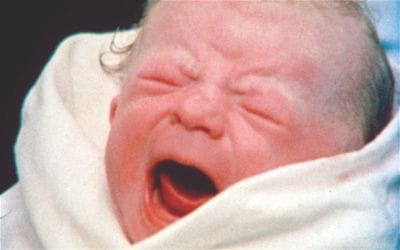Human cloning in 50 years?

Parents who lose children in accidents may be able to clone "copies" to replace them within 50 years, a British scientist who won this year's Nobel prize for medicine has predicted.
Sir John Gurdon, whose work cloning frogs in the 1950s and 60s led to the later creation of Dolly the sheep by Edinburgh scientists in 1996, said that progression to human cloning could happen within half a century.
Although any attempt to clone an entire human would raise a host of complex ethical issues, the biologist claimed people would soon overcome their concerns if the technique became medically useful.
In-vitro fertilisation was regarded with extreme suspicion when it was first developed but became widely accepted after the birth of Louise Brown, the first "test tube baby", in 1978, he explained.
Speaking on BBC Radio Four's The Life Scientific, Sir John said he had predicted at the time of his frog experiments that the successful cloning of a mammal would happen within 50 years.
He said: "When my first frog experiments were done, an eminent American reporter came down and said 'How long will it be before these things can be done in mammals or humans?'
"I said: 'Well, it could be anywhere between 10 years and 100 years – how about 50 years? It turned out that wasn't far off the mark as far as Dolly was concerned. Maybe the same answer is appropriate."
Sir John added that cloning a human being effectively means making an identical twin, and doctors would therefore simply be "copying what nature has already produced".
During public lectures, the Cambridge University scientist said he regularly asks his audience if they would be in favour of allowing parents of deceased children, who are no longer fertile, to create another using the mother's eggs and skin cells from the first child, assuming the technique was safe and effective.
"The average vote on that is 60 per cent in favour," he said, adding "The reasons for 'no' are usually that the new child would feel they were some sort of a replacement for something and not valid in their own right.
“But if the mother and father, if relevant, want to follow that route, why should you or I stop them?"

 For all latest news, follow The Daily Star's Google News channel.
For all latest news, follow The Daily Star's Google News channel. 



Comments